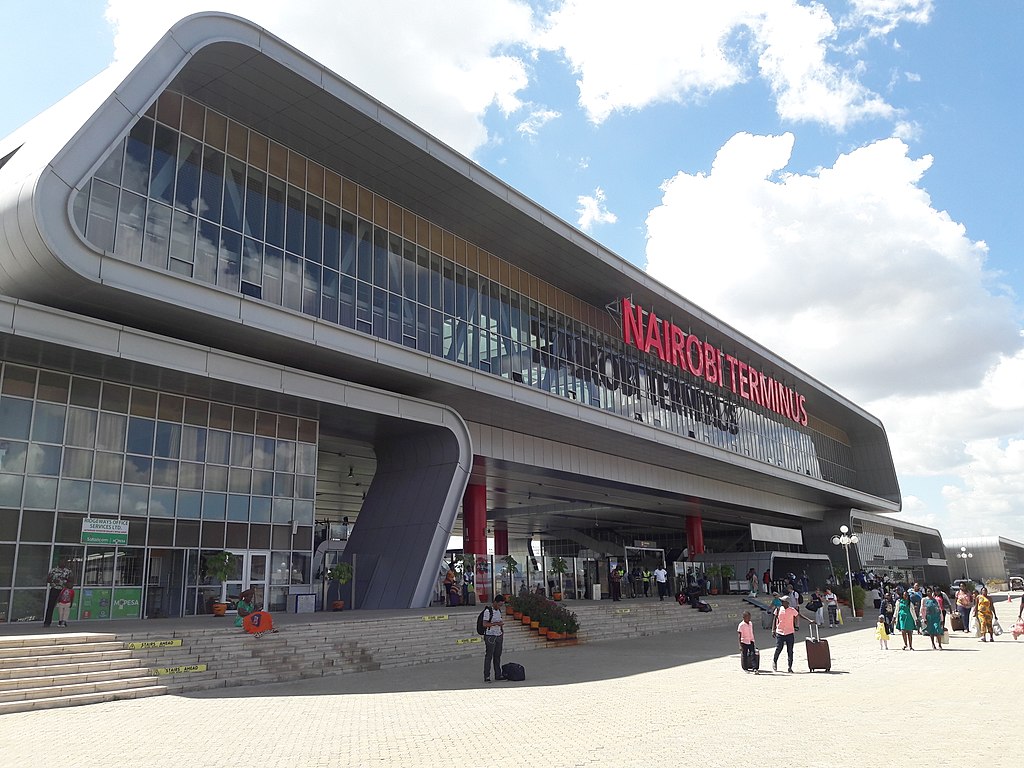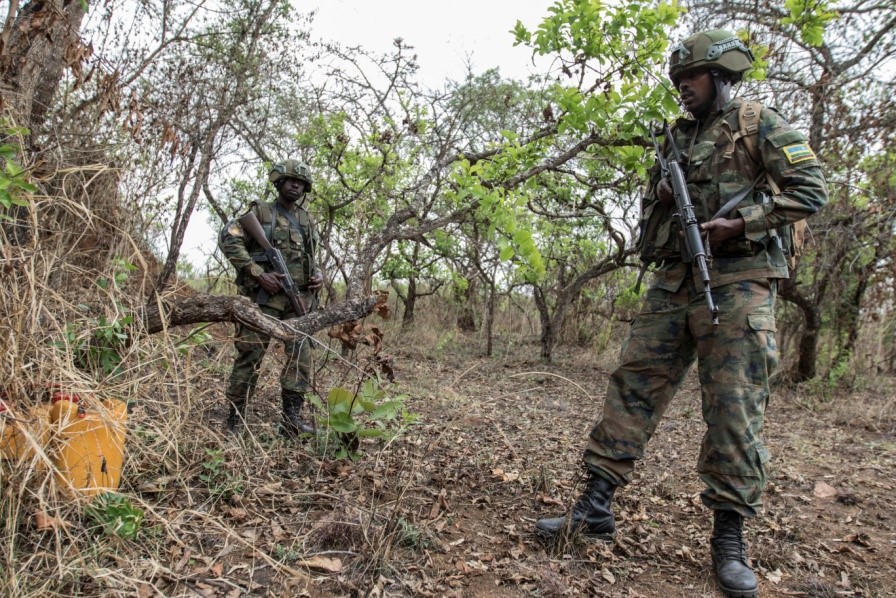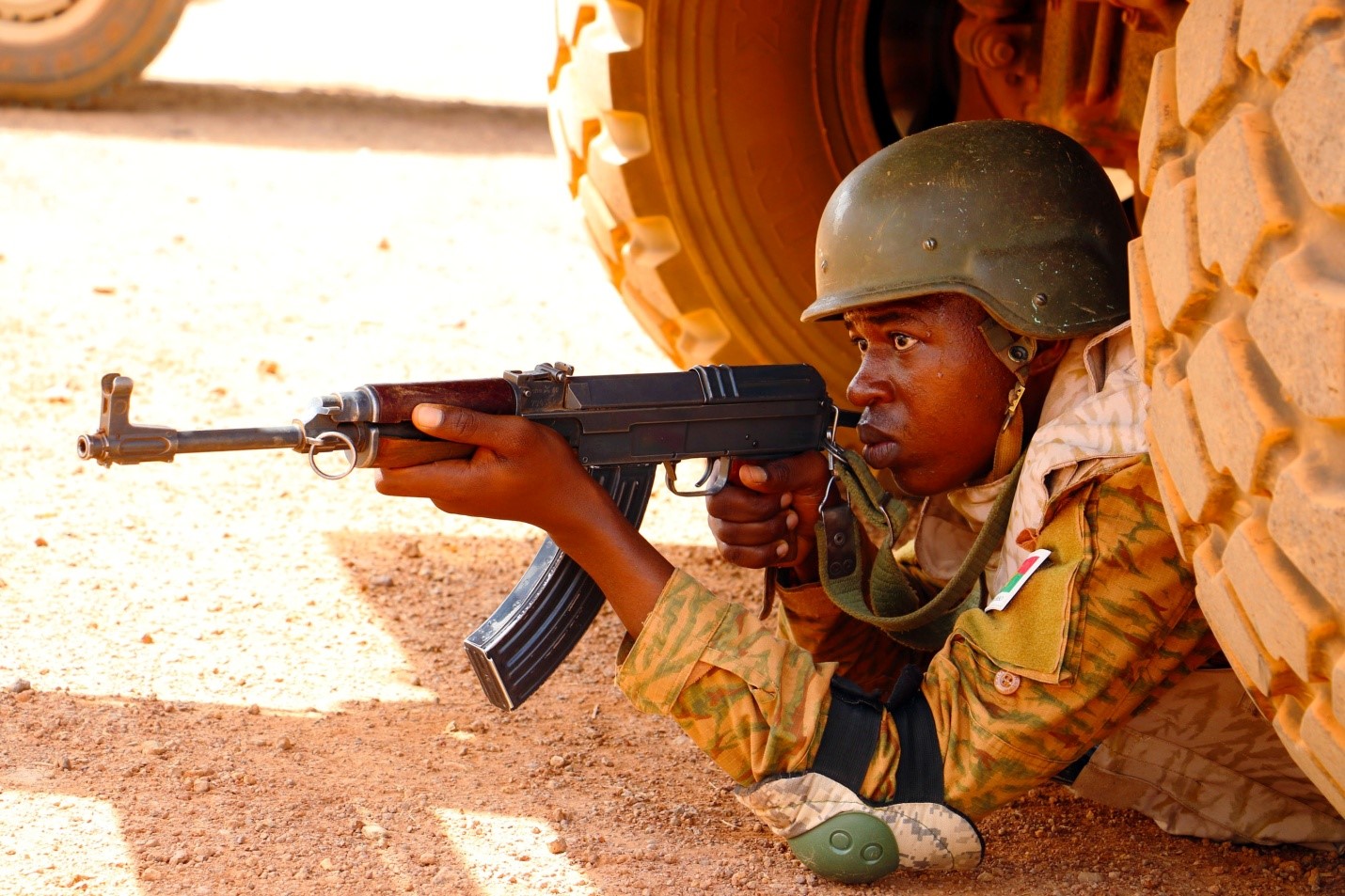
China’s influence in Kenya extends far beyond large scale projects such as the railroad it financed and helped build.
“By going beyond the call of duty to provide auxiliary services to Kenyans, Chinese firms are building [a] strong foundation for public diplomacy in the country.”
In Kenya, China’s influence can be clearly seen in the high-profile Mombassa-Nairobi Railway, the Lamu deep seaport, and the towering Global Trade Centre. However, beyond these massive projects built by Chinese companies, often with Chinese money and labor, there are numerous other means, including much smaller projects, through which China is making its mark in Kenya. As the accompanying excerpted article from the Kenyan news agency Capital News explains, that mark is enormous, with China, and particularly Chinese technology, revolutionizing the country’s infrastructure and helping to supercharge its manufacturing base. Chinese influence on Kenya includes charitable actions, such as delivering substantial amounts of medical supplies critical to helping Kenya deal with the COVID-19 pandemic, all the while garnering appreciation from the Kenyan population. Chinese online education platforms also filled the gap created when 2,000 Kenyan students found themselves cut off from their university as the disease spread.
The influence of Chinese companies is vast: they have donated food, established industrial parks, held educational workshops, and are transferring technology to Kenyan factories. However, as the article notes, perhaps the most important impact China has had on Kenya is the growing attitude among young Kenyans that through hard work and knowledge, the country can accomplish projects of all sizes important to national development. This outlook is in large part a result of Kenyans witnessing, and learning from, successful Chinese businesspeople living and working in Kenya.
The article does not mention any of the pushback against China often discussed in other publications, such as that concerning an unsustainable debt load, poor quality of some Chinese goods, and Chinese workers doing jobs that Kenyans could fill. However, despite this editorial omission, the article does bring to light the influence China has in Kenya beyond the “glitzy” projects, which tends to be underreported and as a result possibly underappreciated. China’s influence in Kenya is far larger than just the high-profile projects would indicate, and as the article describes, that influence is building strong relationships, including diplomatic, between the two countries. It behooves other countries wanting to deal with Kenya to take note of how China has grown that relationship through the breadth and depth of its business activities.
Source:
Adhere Cavince, “How Chinese firms have changed the face of Kenya’s capital, Nairobi,” Capital News (a Kenyan news agency), 22 December 2021. https://www.capitalfm.co.ke/news/2021/12/how-chinese-firms-have-changed-the-face-of-kenyas-capital-nairobi/
The 8th Ministerial of the Forum on China Africa Cooperation held in Senegal last month resolved to support private sector partnerships between China and African countries. Given the strong record of Kenya to attract and sustain high caliber international businesses, more Chinese firms should consider investing in the country and further promote economic integration of the two countries. By going beyond the call of duty to provide auxiliary services to Kenyans, Chinese firms are building strong foundation for public diplomacy in the country.
There is increasing confidence that Kenyans too, can follow the footsteps of their Chinese counterparts and improve their socio-economic standing. As more Kenyans get a chance to interact with Chinese firms, more learning points emerge. Nairobi is for instance home to young and skilled professional in rail and road construction, capable of providing their services beyond Kenya.
In the course of implementing big-ticket infrastructure projects across the country, Chinese enterprises have also engaged in building community roads, setting up water pans and upgrading learning institutions through donation and renovation of classrooms and provision of learning materials. During the floods and landslides witnessed in West Pokot in 2019, for example, Chinese firms donated food and non-food items in a show of solidarity with the affected households.
Yet, beyond these glitzy projects, the firms have equally been engaging in small acts of charity that have equally left inedible marks in the lives of individuals and households across the country.
Image Information:
Image: China’s influence in Kenya extends far beyond large scale projects such as the railroad it financed and helped build.
Source: Macabe5387/Wikimedia, https://commons.wikimedia.org/wiki/File:Nairobi_Terminus.jpg
Attribution: CC BY-SA 4.0


